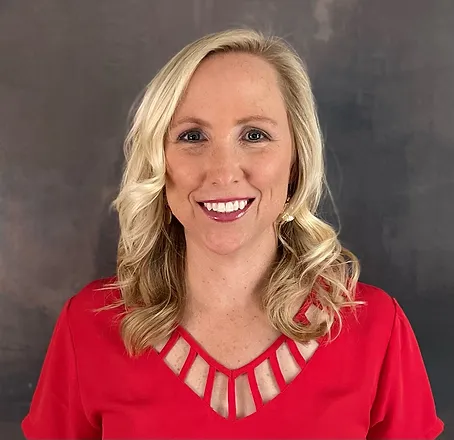I'll be presenting my Presence-Driven Church workshop at this conference, in May.
SMALL CHURCH PASTORS' AND LEADERS' CONFERENCE
EQUIPPING PASTORS AND MINISTRY LEADERS
KEYNOTE SPEAKERS
Enjoy a time away to renew and
energize. Bring some of your church leaders so you can get more
out of the conference as a team. Spend time with other Pastors and
Leaders from smaller churches and be inspired by teaching from gifted Christian
leaders and teachers. Keynote Speakers include NFL Veteran and ESPN
Commentator Sam Acho; small church expert and speaker Rev. Karl
Vaters; Ellen Gray, teacher of “I Said This, You Heard That”
by Kathleen Edelman; and a panel discussion with the three sponsor organization
leaders, Dr. Gene Crume (Judson University), Rev Patty Bilyeu (Executive
Minister ABC-GRR), Rev Mark Thompson (Executive Minister ABC-IN/KY)
Learn More
SAM ACHO
NFL Veteran, ESPN In-studio
Analyst, Author, Speaker
Sam Acho is an author, a public
speaker, a humanitarian, an in-studio analyst for ESPN, a nine-year NFL
veteran, and a committed Christian. He’s also currently an ambassador for the
International Justice Mission.
Learn More
REV. KARL VATERS
Pastor, Author, Speaker
Rev. Karl Vaters' heart is to
help pastors of small churches (up to 90 percent of us) find the resources to
lead well, and to capitalize on the unique advantages that come with pastoring
a small church.
Learn More
ELLEN GRAY
Temperament Specialist, Author
Ellen Gray graduated from
Samford University in 2004 with a B.A. in Religion. She has served the church
and para-church organizations for over 20 years. She has studied temperaments
for nearly a decade and has been Kathleen Edelman's Assistant and understudy
for the past three years. Ellen is married to the love of her life, Ryan,
and they have three beautiful boys, Jackson, Carter, and Maddox.
Ellen is the co-author of three devotional books and is passionate about Jesus,
sports, the outdoors, ice cream, and family.
Learn More
GENE CRUMEJudson University President
Dr. Gene C. Crume, Jr. became
Judson University’s sixth president in April 2013.
Learn More
REV. PATTY BILYEU
GRR Executive Minister
GRR Executive Minister
Learn More
REV. MARK THOMPSON
Executive Director, American
Baptist Churches of Indiana and Kentucky
Executive Director, American
Baptist Churches of Indiana and Kentucky
Learn More
WORKSHOP DESCRIPTIONS
CONFERENCE SCHEDULE 2023
THURSDAY, MAY 18
3:00 PM: Check-in
4:00 PM: Leadership
is More Than ... Workshop - Rev. Dr. Rex Rogers
5:30 PM: Dinner and
Keynote - Ellen Gray
7:30 PM: Social
Activity
FRIDAY, MAY 19
9:00 AM: Worship
9:30 AM: Keynote - Rev.
Karl Vaters
10:30 AM: Breakout
Workshops #1 (See workshop tab at top of website page)
11:45 AM: Lunch and
Keynote - Sam Acho
1:15 PM: Breakout
Workshops (See workshop tab at top of website page)
2:15 PM: Refreshments in the
Cafe
2:45 PM: Breakout
Workshops (See workshop tab at top of website page)
4:00 PM: Breakout
Workshops (See workshop tab at top of website page)
5:45 PM: Dinner
and Panel Discussion with our three supporting organization leaders
Spend time with other Pastors
and Leaders from smaller churches and be inspired by teaching from gifted
Christian leaders and teachers. Choose from workshops highlighting innovative
ministry strategies on topics such as essentials and redefining success in
ministry, capitalizing with online possibilities in smaller churches, leading
the presence-driven church and communication improvement
BREAKOUT WORKSHOPS
Ellen Gray - I Said This, You
Heard That. Learn a simple framework that will instantly improve your
communication.
Rev. Karl Vaters - Big Churches, Small Churches - What's the Difference?
Essentials and Redefining
Success in Ministry
Jaime Flores & Bruce Cochran - Latino-Anglo Bridgebuilders (LAB) is focused
on building healthy, open relationships between Latino and Anglo congregations
Dr. Gene Crume - Capitalizing
with online possibilities in smaller churches
Attorney Sally Wagenmaker -
Getting your legal house of worship in order
Roger Simmons - Managing cultural diversity and training in cultural
awareness
John Piippo - Leading the
presence-driven church
Rev. Meg Biddle - MinistrElife
Workshop
















